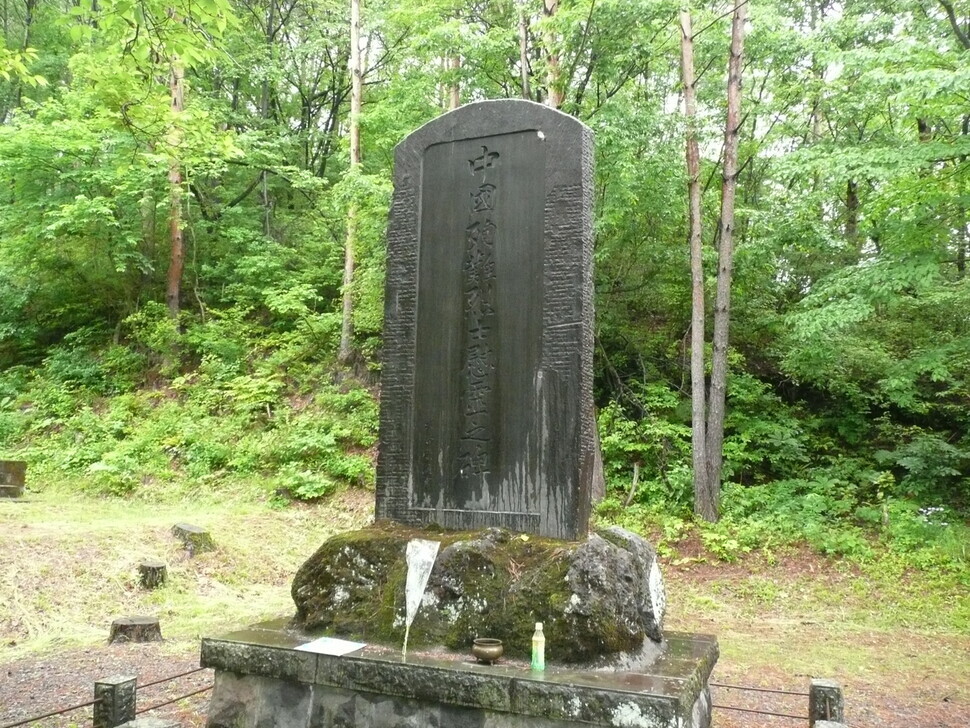hankyoreh
Links to other country sites 다른 나라 사이트 링크
[Reporter’s notebook] Abandoning diplomacy with Japan will fuel anger and hatred on both sides

“Mr. Gil, are Koreans not interested in the reconciliation measures that would come after liquidation?”
The question was posed to me by a Japanese reporter who’d been watching a video seminar on July 25 featuring senior figures from South Korea and Japan, titled “The COVID-19 Crisis and South Korea-Japan Relations.”
The reporter’s question briefly evoked a complex swirl of emotions. More than any other Japanese correspondent in Korea, he’d been energetically covering the issue of victims of forced labor during the Japanese colonial occupation.
After South Korea’s Supreme Court ruled in October 2018 that Japanese companies must compensate Korean victims of forced labor, discourse in South Korea has been divided between those who want Japanese company assets in the country quickly liquidated to benefit the aging plaintiffs and those who want the two countries to speed up diplomatic talks so as to protect bilateral relations.
While officials from the two countries are reportedly carrying on deliberations aimed at resolving this issue, there are few indications that they’re approaching an understanding. Rather than seeking a compromise, which carries severe political liabilities, the South Korean government appears to be focusing on preparing for the consequences of liquidation, while Japan is sticking to its position that the South Korean government should take responsibility for its Supreme Court’s ruling.
During the seminar, Masatoshi Uchida, an attorney who has long worked to resolve issues between the two countries, brought up examples of “reconciliation” between Japanese companies and Chinese victims, examples in which he’d been personally involved. “Historical issues cannot be resolved by simply carrying out the Supreme Court’s ruling,” Uchida argued.
Perhaps the best known example of reconciliation between China and Japan concerns the Hanaoka Incident. Toward the end of World War II, 986 Chinese workers at the Hanaoka Mine in Japan’s Akita Prefecture rose up in revolt, unwilling to endure the harsh labor and poor conditions any longer. The murderous labor, the revolt itself, and the torture that followed claimed the lives of 418 individuals, representing 42% of the mine’s workforce.
Then in 1989, half a century later, Chinese survivors and family members of the deceased filed for compensation from Kajima Corporation, the construction firm that had operated the Hanaoka Mine.
In November 2000, after a long struggle in the Japanese courts, the Chinese plaintiffs finally got some satisfaction, in the form of “reconciliation.” The Japanese company acknowledged that “the Chinese [plaintiffs’] suffering is a historical fact, resulting from their conscription and forced labor.”
Even earlier, in 1985, the Japanese city of Odate began holding a memorial service at the site of the incident. Chinese survivors and bereaved family members took part in the service, laying floral wreaths before a monument erected there to commemorate the Chinese victims. In April 2010, the city also opened a museum to ensure that the tragic events are remembered.
What’s the best solution for Korea’s plaintiffs? If diplomacy is abandoned and the current judicial process is allowed to unfold unchecked, the inevitable result is asset liquidation. The plaintiffs will no doubt get their financial compensation, but they won’t get an apology from the Japanese companies, and the possibility of reconciliation between the two countries will vanish. That’s why Uchida expressed doubt about whether that could really be regarded as a solution.
According to Japanese activists, the Japanese companies being sued had repeatedly indicated that they would comply with the Supreme Court’s ruling. It’s the Japanese government that’s prevented them from following through on their word. Thus, we have no choice but to continue our diplomatic deliberations with Tokyo. The only thing we’ll gain from giving up diplomacy is the distrust and hatred that will linger on both sides.

By Gil Yun-hyung, staff reporter
Please direct comments or questions to [english@hani.co.kr]

Editorial・opinion
![[Column] Season 2 of special prosecutor probe may be coming to Korea soon [Column] Season 2 of special prosecutor probe may be coming to Korea soon](https://flexible.img.hani.co.kr/flexible/normal/500/300/imgdb/original/2024/0426/3317141030699447.jpg) [Column] Season 2 of special prosecutor probe may be coming to Korea soon
[Column] Season 2 of special prosecutor probe may be coming to Korea soon![[Column] Park Geun-hye déjà vu in Yoon Suk-yeol [Column] Park Geun-hye déjà vu in Yoon Suk-yeol](https://flexible.img.hani.co.kr/flexible/normal/500/300/imgdb/original/2024/0424/651713945113788.jpg) [Column] Park Geun-hye déjà vu in Yoon Suk-yeol
[Column] Park Geun-hye déjà vu in Yoon Suk-yeol- [Editorial] New weight of N. Korea’s nuclear threats makes dialogue all the more urgent
- [Guest essay] The real reason Korea’s new right wants to dub Rhee a founding father
- [Column] ‘Choson’: Is it time we start referring to N. Korea in its own terms?
- [Editorial] Japan’s rewriting of history with Korea has gone too far
- [Column] The president’s questionable capacity for dialogue
- [Column] Are chaebol firms just pizza pies for families to divvy up as they please?
- [Column] Has Korea, too, crossed the Rubicon on China?
- [Correspondent’s column] In Japan’s alliance with US, echoes of its past alliances with UK
Most viewed articles
- 1Samsung subcontractor worker commits suicide from work stress
- 2Division commander ordered troops to enter raging flood waters before Marine died, survivor says
- 3No good, very bad game for Korea puts it out of Olympics for first time since 1988
- 4‘We must say no’: Seoul defense chief on Korean, USFK involvement in hypothetical Taiwan crisis
- 5[Column] Season 2 of special prosecutor probe may be coming to Korea soon
- 6Is N. Korea threatening to test nukes in response to possible new US-led sanctions body?
- 7Korea’s 1.3% growth in Q1 signals ‘textbook’ return to growth, says government
- 8US overtakes China as Korea’s top export market, prompting trade sanction jitters
- 9[Column] Has Korea, too, crossed the Rubicon on China?
- 10[Column] ‘Choson’: Is it time we start referring to N. Korea in its own terms?